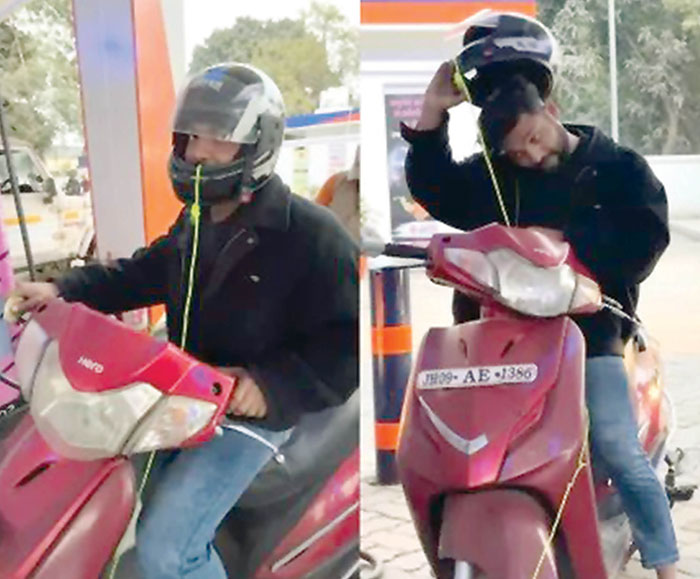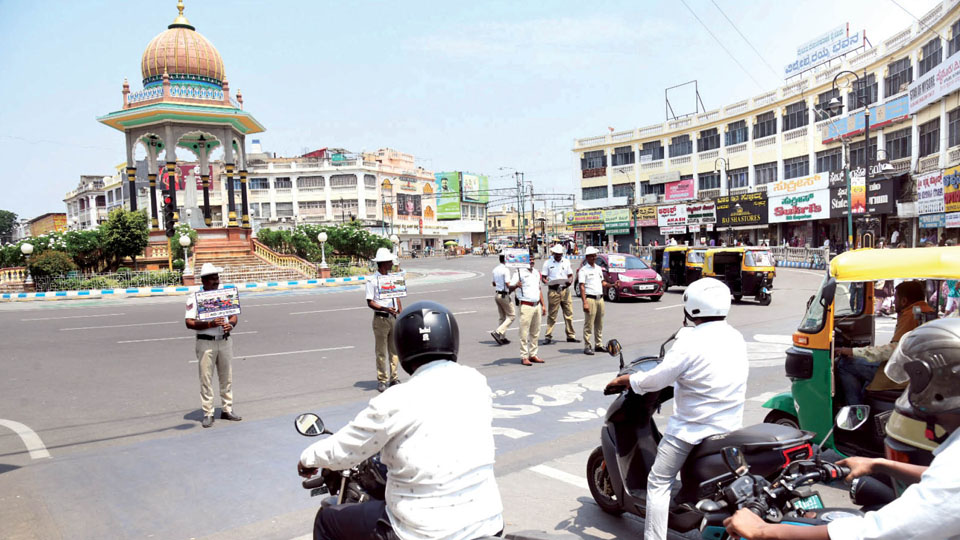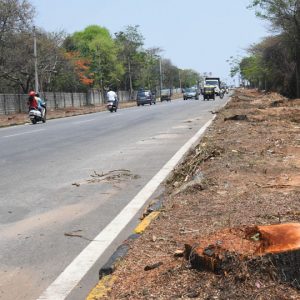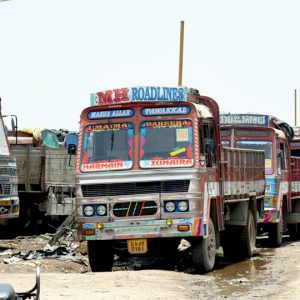
Yesterday, our city’s Police Commissioner Seema Latkar made a rather reasonable statement: “We don’t have any intention to book a case and collect fines. Rules are enforced for your safety.”
She’s absolutely right. But the sad irony is this: In India, we seem to have a stunning disregard for our own safety.
Why should a senior Police Officer remind grown adults not to drive drunk or to wear a helmet? These are not acts of civic duty — they’re matters of basic survival. Yet, in this country, anything sensible must be enforced with threats and fines, whether it’s wearing a helmet or showing up to vote.
Take two-wheeler riders, for example. Helmets are for their protection. Not wearing one doesn’t inconvenience the Government. It endangers you. Yet, countless riders choose fashion, laziness or sheer apathy over self-preservation.
And when they get fined for it, the outrage begins — not at the risk they took, but at the Rs. 500 they lost. Worse, they offer bribes to avoid the official fine and then, with sobered indignation the next day, whine about corrupt cops. Hold on. You were drunk, you broke the law and you bribed the constable. But he’s the problem?!
Let’s be honest: We, the public, are equal partners in everyday corruption. We routinely
break basic traffic rules. Then when caught in our drunken stupor, we slip Rs. 2,000 into Khaki pockets and the next day, while nursing a hangover and after having saved Rs. 8,000 in fines, we find the moral courage to complain about ‘a corrupt system’?
Even those who bother wearing helmets often treat them as little more than props often wearing them on their forearm instead of their heads. They are also like props — flimsy plastic shells barely suitable for cricket practice, let alone a traffic collision. It seems some people wear helmets only to protect themselves from the Police, not a head injury.
A proper helmet, as per BIS (Bureau of Indian Standards), must have an inner layer of polypropylene foam and a strong outer shell of plastic or synthetic fibres.
These features exist for one reason: To protect your brain. An ISI-certified helmet buckle can withstand up to 105 kg of force. The street-side knockoff? About 5 kg. When you fall, your cheap helmet’s buckle snaps, it flies off your head — and your skull takes the full blow. Paralysis or death follows. But hey, at least you saved Rs. 1,000, right?
This casual recklessness is uniquely Indian. We hang off trains, dart across railway tracks, drive up on one-ways and unbuckle our seatbelts the moment a plane touches down. We don’t just flirt with danger — we swipe right on it.
Even when offered safety upgrades, we choose not to bother. Maruti Suzuki, in its survey, was shocked to find that only 5 percent of Alto buyers were willing to pay Rs. 6,000 extra for a passenger-side airbag. Apparently, some people love their cars more than their spouses.

So yes, when we’re too headless — literally and figuratively — to protect our own lives, the law must intervene. And for good reason. The Asian Development Bank estimates that road accidents cost developing countries from 1 to 3 percent of their GDP annually in the form of medical expenses, insurance payouts and productivity losses.
Ironically, it’s not engineers or bureaucrats offering solutions — it’s school children. Two Class 10 students from Trichy, Tamil Nadu, developed a ‘Helmet-Enabling Device’ that prevents a bike from starting unless the rider is wearing a helmet. Some States tried similar enforcement.
Fuel stations were told not to serve helmetless riders. But this is India — a nation of ‘loop-hole’ people. In Jharkhand, petrol bunks started tying helmets to strings and placing them on a table next to the pump. Riders would borrow it for 30 seconds, get their fuel, and move on. Wah!
That the Government must chase down citizens and force them to take care of themselves is not just tragic — it’s absurd. It suggests that we either have a Death Wish or a Superman Complex. Or maybe, as with most things, we just leave it to ‘Destiny.’ Because taking personal responsibility? That’s too much effort.
Every time there’s a helmet-checking drive, roads turn into a live-action Tom & Jerry cartoon.
Two-wheeler riders become reckless mice, darting into lanes and cutting across traffic to avoid the waiting Cop.
And while law enforcement is necessary, this chase is dangerous — not just for riders but for the officers themselves, who often dash into oncoming traffic.
Is there a better way? Cops could use traffic camera footage to document violations and send challans to registered addresses. If someone breaks the rule thrice or refuses to pay the fine, the vehicle can be seized. It’s already working for overspeeding — why not helmets? It would certainly be safer than turning roads into stunt arenas every time enforcement begins.
That said, there’s something darkly entertaining about helmet checkpoints. It’s the stage for the great Indian drama. You’ll witness adults conjure creative excuses on the spot, pretend to cry, plead medical emergencies, or swear they were just on their way to buy a helmet.
For young adults, it’s their first encounter with ‘the system’— their debut performance in the art of bribery.
But here’s the bottom line: If you’re reckless enough to ride drunk or helmetless, and then bribe your way out of consequences, you’re not just risking your life — you’re sponsoring your own potential disfigurement. Worse, you could be paying for someone else’s funeral.
So, wear a helmet. A real one. Not because you’re afraid of fines. But because your life — and the lives around you — are worth protecting. If you don’t care, why should the Government?
e-mail: vikram@starofmysore.com








Recent Comments